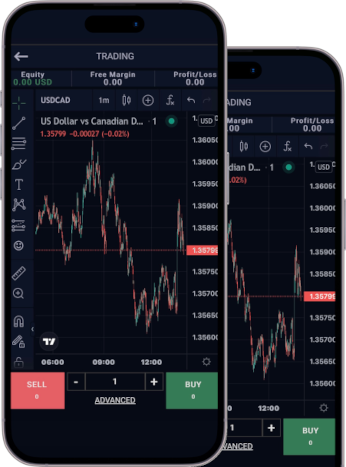Open your account
Applying for an account is quick and easy with our secure online form, and you could be trading within minutes.

The global currency market known as "FOREX" (Forex, Foreign Exchange Market) involves the buying and selling of foreign currencies.
The exact location of the "FOREX" market is unknown. Bidding transactions between parties in Europe and Asia can be conducted through the use of the Internet.
The major participants in the currency market include central and commercial banks, investment funds, broker firms, dealing centers, as well as individual traders.
Market makers are companies that assume risk on the currency exchange market. They hold a specific quantity of currency to ensure trading continues even when the market is not liquid.
A broker is a company or legal entity that participates in the market professionally. They act as intermediaries at the conclusion of contracts, authorized to conduct trade operations on behalf of themselves and clients based on legally binding contracts.
A trader is a professional market participant who has the authority to carry out trade operations on behalf of themselves and clients. They act as intermediaries at the conclusion of contracts based on binding agreements with clients.
The main currencies traded on the currency market include the US dollar (USD), euro (EUR), Japanese yen (JPY), British pound (GBP), Canadian dollar (CAD), Australian dollar (AUD), and Swiss franc (CHF).
The earning potential of a trader in the currency market depends on their desire, willingness to invest time and effort, and overall commitment. Many professionals have demonstrated the possibility of making 100% or even higher returns per year in the "FOREX" market.
The currency exchange market is not akin to a lottery where success solely relies on luck. To achieve success, it is essential to acquire knowledge from books, specialized magazines, internet sources, webinars, seminars, and courses taught by experts. Understanding the guiding principles and theoretical foundations of currency market analysis is crucial. Lack of experience and training can lead to losses.
Start with studying charts and performing comprehensive analysis of trends. Continue self-improvement by reading specialized literature. You can find valuable resources on the "PipWorldXm" company website (www.pipworldxm.com). Consistency and sticking to a strategy will contribute to your success. If possible, start trading with a demo account. However, many industry experts believe that trading on a demo account does not accurately simulate real FOREX trading. Therefore, it is advisable to start with a small but real investment on a live trading account.
In the FOREX market, a degree is not of significant importance. It has been proven that those who genuinely strive for success can achieve it. Your ambition to master currency trading is the most crucial element. With the abundance of free educational materials available to traders, you can quickly acquire all the necessary knowledge. These materials can help you gain the information and skills required for trading on "FOREX."
Yes, but not always. You can find all the relevant materials in Russian on our website and other topic resources.
Hedging is a risk management strategy that involves insuring against price fluctuations. It is accomplished through the use of forward contracts in the futures markets. The concept of hedging originated in Chicago to protect products from sudden currency market fluctuations. Hedging involves balancing liabilities or opening counter positions on currency purchases and sales.
The spread refers to the difference between the buying and selling prices of currencies. Brokers make money from customer trades by utilizing the spread.
Applying for an account is quick and easy with our secure online form, and you could be trading within minutes.
